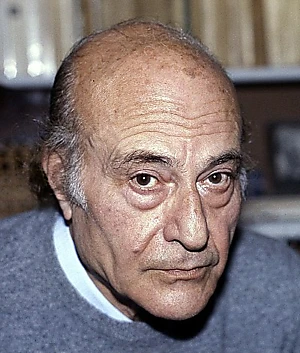Biography
Odysseas Elytis (Greek: Οδυσσέας Ελύτης, pen name of Odysseas Alepoudellis, Greek: Οδυσσέας Αλεπουδέλλης; 2 November 1911 – 18 March 1996) was a Greek poet, man of letters, essayist and translator, regarded as the definitive exponent of romantic modernism in Greece and the world. He is one of the most praised poets of the second half of the twentieth century, with his Axion Esti "regarded as a monument of contemporary poetry". In 1979, he was awarded the Nobel Prize in Literature.
He was twice Programme Director of the Greek National Radio Foundation (1945–46 and 1953–54), Member of the Greek National Theatre's Administrative Council, President of the Administrative Council of the Greek Radio and Television as well as Member of the Consultative Committee of the Greek National Tourists' Organisation on the Athens Festival. In 1960 he was awarded the First State Poetry Prize, in 1965 the Order of the Phoenix and in 1975 he was awarded the Doctor Honoris Causa in the Faculty of Philosophy at Thessaloniki University and received the Honorary Citizenship of the Town of Mytilene.
Filmography
all 1
Movies 1
Writer 1
Information
Known ForWriting
GenderMale
Birthday1911-11-02
Deathday1996-03-18 (84 years old)
Birth NameΟδυσσέας Αλεπουδέλης
Birth PlaceHeraklion, Greece
CitizenshipsGreece
Awardsdoctor honoris causa from the Paris-Sorbonne University, Nobel Prize in Literature
This article uses material from Wikipedia.
Last updated:
 Odysseas Elytis
Odysseas Elytis- Filmography
- Information
